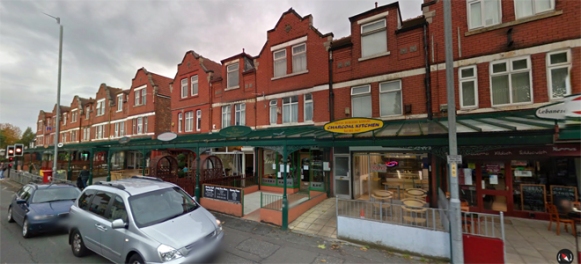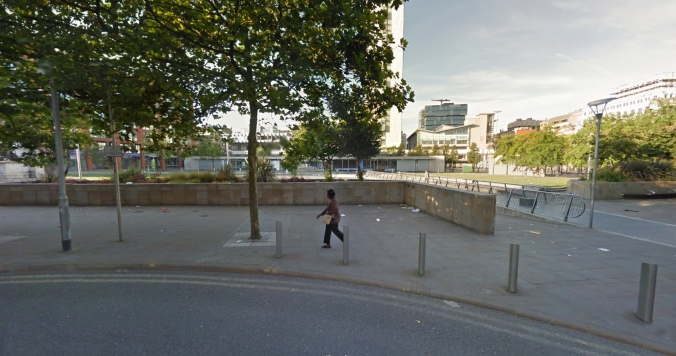Four seasons in and still no film in the camera
If you have not seen Master of Photography on Sky Arts, it’s a sort of MasterChef for photographers. The key difference being, with MasterChef, the contestants generally improve over time. Here, if anything, the photographers get more and more hopeless over the course of eight programmes. And if there are any entertainingly bad ones, they are – unfortunately – usually the first to leave.
The familiar ‘judged-off’ format has worked for chefs, bakers, potters, ice-skaters, loungers-around houses, water colourists, sexy shaggers on islands, and dancers. Yet somehow it refuses to work for photography, despite a huge budget, many famous names and a realistic simulation of the professional snapper’s roster of international assignments.
What happens in each episode is that 12 promising amateur photographers are given a brief by the judges. The brief is always clear. For example: “This week we want you to go into the ancient Bialowieza Forest, Poland and capture a defining image of a mossy log.”
Ten of the 12 contestants then set out early, spend all day wandering around the woods with a £50,000 Leica camera and lens – supplied by the show’s sponsor – and come back six hours later with one reasonably adept photograph of a log. One contestant digs a hole in the ground to get a better up-angle and goes on to win the round by virtue of being that tiny bit more interesting than the rest.
And then there are the radicals. And there are always two. These mavericks completely reject the brief, and head into the woods to find their own very special interpretation of ‘mossy log’. Six hours later, one emerges with a picture of an elderly woman in a fur coat with a Gucci handbag and a pink poodle; the other has produced an image of her own pubes on a plastic dinner plate.
“How does this fulfil the brief?” ask all three judges, their vast fees from Sky Arts beginning to seem less than adequate.
“I wanted to pursue my own interpretation,” the contestant replies.
“You interpret a mossy log in a forest as slightly out of focus fanny hairs on a plate?” one Judge probes.
Usually, the first of the two ‘mavericks’ is booted off at the end of show one (the other one must wait a week). And since we are now in series four, any contestant choosing to be the maverick straightaway comes across as wilfully self-destructive.
Sky Arts “Master of Photography” Trailer from Leica Camera on Vimeo.
Another thing that happens, with a similar clockwork regularity, is the ritual snubbing of the guest expert. In one edition the contestants are sent out with a brief to capture the ‘chaos’ of the profoundly sensible Hamburg rush hour. The talented, kindly professional, a resident of the city, Siegfried Hansen, was on hand to offer advice in picking and processing the best photograph from the thousands taken.
“I would suggest using this one here, it is a beautiful evocation, the railway station is still dark, the sleepy commuters mass onto a seemingly endless platform, and in the distance the first light is giving just enough definition to the factory, where they must go…” says the keen-eyed mentor to an unconvinced apprentice shutterbug.
“I think I’m going to use this one, of a pigeon eating a sticking plaster,” replies the daring young photographer.
There are no David Brent-like glances to camera at such moments. And this show desperately needs some laughs.
The rare moments of humour you do get in Master of Photography tend to stem from the contestants’ astonishing naiveté. Out on the streets of Porto, let us imagine, a contestant finds a man walking to work. The current assignment is titled: ‘River Reflections’.
“Can I come into your house and shoot you having sex with your wife?” asks the bright-eyed young photographer.
“No,” says the man.
“Please, sir, it is important to me.”
“F(bleep) off.”
“Okay. Thanks anyway…. Mmmph. Now I feel like giving up.”

Second from left. Oliviero Toscani
By contrast, the jury is as tough and weathered as an old war camera. It is made up of Oliviero Toscani (who has a plenty of brass showing) and two others – usually very impressive industry experts who never manage to last more than one series. All seem bewildered by the choice of work they are called upon to judge.
Remember, there is an impressive prize of €100,000 at stake (Why, you could buy almost two Leica’s with that!) and yet the contestants – all young, hip, and from every cool corner of Europe – seem perpetually downbeat. Perhaps this generation is not as motivated by money as the heads at Sky imagined?
Whatever, it is the jury who must keep this boulder rolling.
“This is trite, a cliché, I’ve seen this a thousand times, so boring,” grumps Toscani, contractually the mean judge, as a young Austrian presents an image of the Eiffel Tower at sunset.
So far, none of the contestants has had the courage to reply, “Are you talking about my photograph, or the format of this show?”
The format is – four series in – still the problem, and changing the judges is not the fix.
It could, however, be that there are simply not enough types of photography. And that the discarded photographs are not discussed.
The many images that didn’t make it – the dross – are almost certainly more interesting for a TV audience than the nice, formal, competent images the contestants push forward. The audience, after all, is as opinionated as the jury.
Each contestant takes hundreds of shots, but the show focuses on only ‘the one’. You see this one image being snapped in the first half of the show, then judged in the second. There is, therefore, no ‘reveal’, no equivalent of the cake coming out of the oven, or the live performance of the dance routine rehearsed all week.
And then there are only glimpses of the post-production. In the digital era, this is an art in itself, often the greater part of the story of the image and the part of the process where the photographer really learns to ‘see’.
Or perhaps the real problem is the sponsor?
We never see a film camera, never any large format work, use of plates, older classic cameras, or famously difficult cameras that require tricky techniques. The audience is never going to get a Polaroid round, since Polaroid are not the sponsor. There will never be a round where the contestants must build pinhole cameras.
If you were indeed a Master of Photography, you would know about these things.
Imagine a round where the contestants are given 100 euros and told to buy a camera from a flea market, before taking 24 black and white shots of that same market. Imagine this digital generation trying processing the film in a darkroom. Imagine, indeed, this show pushing the envelope. It would require the sponsor’s products to be left out of the picture.



























